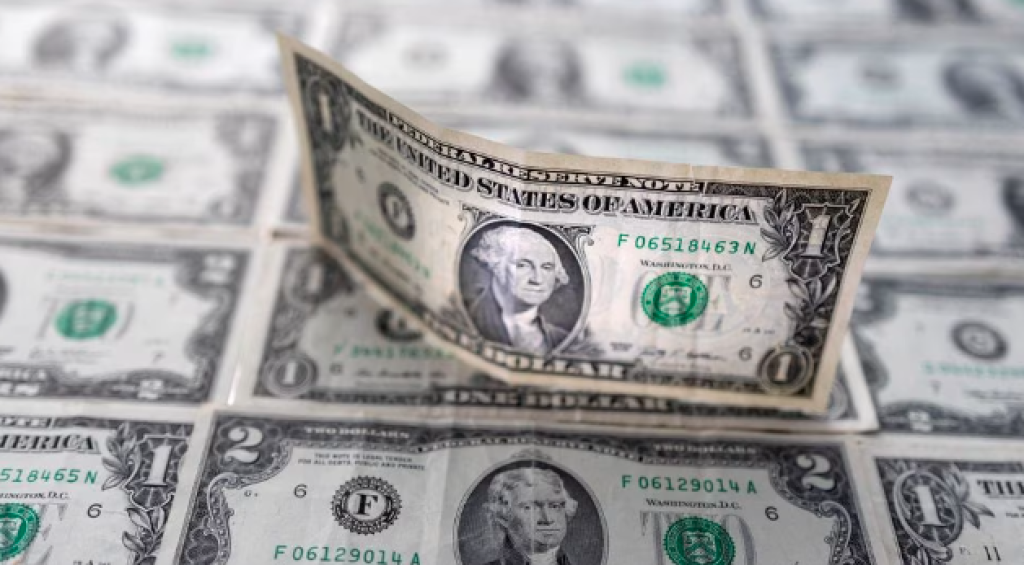The dollar edged higher on Monday after the April survey of business activity in New York state rose for the first time in five months and bolstered expectations the Federal Reserve will raise interest rates in May.
The dollar index , a measures of the currency against six major peers, rose 0.443% after the Empire State Manufacturing index shot to 10.8 from -24.6 in March, far higher than expectations of -18 in a Reuters poll of 35 economists.
The new orders index rose 47 points to 25.1, while the shipments index added 37 points to 23.9, substantial increases after they had declined in recent months, the Federal Reserve Bank of New York said.
“It’s the best reading since last July with a big jump in orders and has taken the dollar higher on this,” said Marc Chandler, chief market strategist at Bannockburn Global Forex in New York.
“The economy still looks like it’s growing above what the Fed says is its speed limit,” he said. “The market is under-estimating chances of another hike after May. Now the market says the Fed is going to cut later, but I think that the economy is showing itself to be resilient.”
Futures trading showed the probability of the Fed raising its lending rate to a range of 5.00%-5.25% when policymakers conclude a two-day meeting on May 3 rose to 84.1% from 78% on Friday, CME Group’s FedWatch Tool showed.
Fed funds futures also showed that expectations the Fed will start cutting rates later this year were pushed back to November from September, with a smaller cut now anticipated.
The outlook of U.S. interest rates relative to the monetary policies and economies of other countries can boost or erode the dollar’s value.
The euro slid 0.71% to $ 1.0921 after hitting a one-year high of $1.108 on Friday. Traders expect further interest rate hikes from the European Central Bank.
The yen weakened 0.45% at 134.39 per dollar as the Bank of Japan stuck to its easy-money policies, helping the greenback rise to its highest level since March 15.
“The dollar has bounced back but also we’ve had comments from the Bank of Japan indicating that there is no real reason for them to pull back from their ultra easy policy,” said Jane Foley, head of FX strategy at Rabobank.
New Bank of Japan Governor Kazuo Ueda last week made clear that the country would remain a “dovish” outlier by keeping interest rates at ultra-low levels for the time being.

Sterling was last trading at $1.237, down 0.35% on the day.
The Mexican peso lost 0.51% versus the dollar to trade at 18.12, while the Canadian dollar fell 0.31% versus the greenback to 1.34 per dollar.
Beat Nussbaumer, a currency trader and portfolio manager, said he thought the market was set for a dull patch, bar any major crisis.
“I think the dollar will weaken over the next many, many weeks, but the story is so marginal that it will be a slow burner,” he said.
“There’s a bit of a vacuum out there right now. It’s going to be data to data.”
Source : Reuters





































































